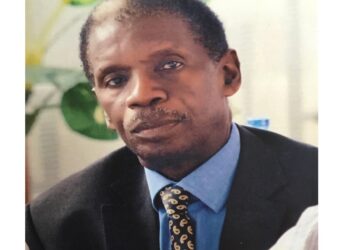We often see life in terms of winning. In sports there are always winners and losers, and we see business in the same terms. Donald Trump’s paradigm is entirely in terms of winners and losers, and his whole identity is tied up in being a winner, which is why he was incapable of conceding the election. People who have this frame of reference tend to be very competitive, and when they ‘win’ they trumpet their success. The books on success tend to be written by ‘winners’, which is why one should not take them too seriously because they contain an automatic bias since ‘the losers’ point of view is missing. As they say, ‘History is written by the winners.’
While the drive to be a winner is commendable and there are many inspiring stories about those who have risen from poverty, overcome the odds and gone on to achieve great things because of their drive to win, there is another way to look at life. While sports games are finite, life is an infinite game in which we sometimes win and sometimes lose. This is also true of business; it is a long game. From 1981 to 2001 Jack Walsh was the CEO of GE, the largest industrial conglomerate in the world. He wrote several books, one of them called ‘Winning’ and was named CEO of the Century because he took over an historic company and grew it to make it the most valuable company in the world at that time. Jack was a brilliant leader who saw business as a finite game: there were winners and losers, and as far as he was concerned, if his companies were not at the top in their field, they were losers to be sold off. He also had a policy of firing the bottom 10% of poor performers and promoting the top 10% best performers.
He hand-picked his successor, Jeff Imelt, and in 2001 handed him a company worth four hundred and ten billion dollars. Fifteen years later when Imelt was fired, the company’s value had fallen precipitously and was subsequently broken up. So, was Jack Walsh a winner and Jeff Imelt a loser? One gains a clearer picture if one looks at business in terms of cycles and not just as winners and losers. Thomas Edison was the founder of GE, and GE was perceived as an industrial conglomerate making light bulbs, domestic appliances, power plants and Jet engines, but what people did not know was that it was also a huge finance company. Jack Walsh realised he could use GE’s triple A rating to borrow at extremely low interest rates and make loans at high interest rates. It was a licence to print money, and he loved it, but in order to do this he borrowed short term and lent long term. Walsh was famous for always delivering consistently on his quarterly earnings year after year – because he was able to dip into his piggy bank of financial services to cover up any poor performance on the industrial side. During Jeff Imelt’s term the 2008 financial crisis happened and GE’s financial model crashed. Thus GE not only suffered huge losses but ended up jettisoning what had been the most profitable part of the business. Subsequently the earnings of its power division slumped, and its profitable cable TV and film studio, NBC Universal, was sold off, leaving GE a shadow of its former self.
Imelt was not a great leader because he did not like bad news and did not listen to his team, and, though Walsh was brash, he could listen and be persuaded to change his mind. So Imelt made many bad decisions, but the seeds of GE’s destruction had been sown by Jack Walsh. His focus on showing consistent short-term earnings (often at the expense of human capital) so that the share price continued to rise, ignored the risks for the long term. Perhaps if he had seen his leadership more in terms of playing the infinite game rather than winners and losers, he might have safeguarded the business for the decades that followed.
Life does not have to be about winning at all costs. Winners and losers come and go, but what should not change is that we stay decent human beings. Now business books are being rewritten, and instead of emphasising winning as getting a short-term return on capital for investors they are returning to the importance of human values – such as empathy, purposefulness for the individual, being part of a great team, and creating an environment which brings out the best in people. Life is not simply about winning at all costs. How many of us think that Donald Trump is a good role model for our children?
Do you have a story in your community or an opinion to share with us: Email us at editorial@watchdoguganda.com













